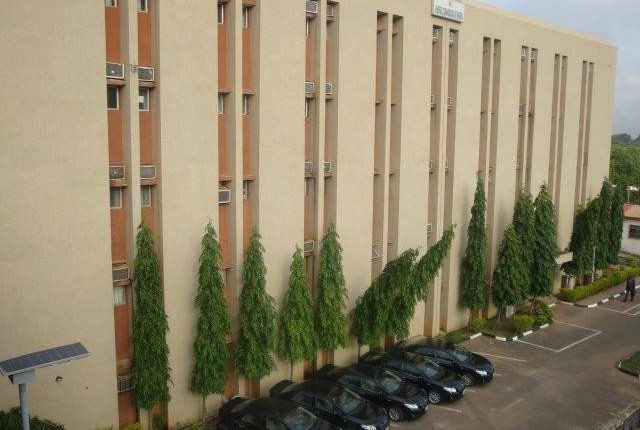BREAKING: ECN, UNIDO Expand Energy Efficiency Campaign To Abuja

The Energy Commission of Nigeria (ECN), in partnership with the United Nations Industrial Development Organisation (UNIDO), has expanded its energy efficiency drive campaign to Nigeria’s capital, meeting with key industrial stakeholders in Abuja. The gathering marked the continuation of the Global Environment Facility (GEF) project titled “Improving Nigeria’s Industrial Energy Performance & Resource Efficient Cleaner Production through Programme Approaches & the Promotion of Innovation in Clean Technology Solutions.”
The initiative, launched in Kaduna State in April, seeks to embed Resource Efficiency and Cleaner Production (RECP) best practices within selected small, medium and large-scale enterprises nationwide. Under the project, participating industries will adopt Industrial Energy Efficiency (IEE) measures and implement Energy Management Systems (EnMS) to optimise operations, curb waste and reduce greenhouse gas emissions.
Addressing industry players present at Interior Woodwork Limited, Abuja, Engr. Okon Ekpenyong, Industrial Energy Efficiency Consultant to the ECN, underscored the fundamental principle of energy efficiency: delivering the required service while consuming less power. “So the purpose of our coming here is that, yes, we have a problem. Energy issues have been with us for a very long time. And there are many efforts, nationally, internationally, to see how to reduce the impact,” he declared. He added that energy efficiency signals unavailability or insufficiency of the resource, hence the need to conserve it and reduce wastage in any form.
Expatiating on reducing energy wastage, Ekpenyong emphasised the importance of behavioural change in mitigating this anomaly through conservation-friendly actions like switching off all energy-consuming machinery when going on lunch breaks, turning off all heavy-duty equipment and electrical appliances on close of business for the day and powering only electrical equipment needed over the weekend, as companies no longer operate on full-scale during this period.
Turning to industrial applications, Engr. Ekpenyong explained that the same tenets apply to machinery and production lines. “When you talk about energy efficiency, it’s nothing more than the ability to get the service you want while reducing your energy consumption,” he said.
“So, when you come back to industries, we are talking about you getting your production going on with your equipment with a lower amount of energy but higher production.”
He further stressed the global concern accompanying energy generation by industries using fossil fuels, including diesel, noting the direct correlation between fossil energy and atmospheric contamination and the resultant need to cut its production by consuming less on a need basis.
“In the global world, the developed world, their concern is not just the energy access but the environment. Hence, they have now decided to support this project. You see GEF, the Global Environment Facility, saying that when we generate electricity either with diesel or with any other form, we also emit carbon dioxide into the atmosphere, which can affect our environment, leading to climate change. So, their own concern is mainly on climate change. So, they are now saying that, after all, it is the more you use, the more you generate, so if you can reduce the amount of energy you are using, you are consuming without necessarily reducing your production – that’s the logic in it,” he explained.
In his response, the representative of Interior Woodwork Limited, Abuja, John Oluwagbemiga, commended the ECN/UNIDO team, acknowledging the outreach as timely and apt.
“We really appreciate this gesture. You talked about planning, and we will manage energy in our organisation going forward,” he remarked.
He said the company was going to sit down, plan, and map out a clear and implementable energy efficiency strategy, adding that leadership and commitment will play key to sticking to this plan.
He expressed his appreciation to the IEE project team for pledging to build the capacities of industry actors in energy management best practices including energy review, performance and audit.
This recent visit adds to several others carried out by the ECN/UNIDO team last month following the launch of the IEE project in Kaduna State Nigeria, where several high-profile industries were visited during the Kick-Off Review Meeting at their individual premises including Chello Industries Limited; FaLGate Food Limited; Arewa Metal Container (ARMECO) Limited; Seven Up Bottling Company; and Kaduna Furniture and Carpets Company (KFCC) Limited.
Industry representatives present at the meeting voiced enthusiasm for the ECN–UNIDO collaboration. Many pledged to adopt the recommended RECP frameworks and EnMS protocols, anticipating that enhanced energy monitoring and management will bolster their competitiveness and sustainability. The project’s programme approach includes training workshops, on-site audits and the establishment of energy performance indicators, with periodic reviews planned over the next two years.
As Nigeria strives to meet its commitments under the Paris Agreement and bolster its industrial base, the partnership between ECN and UNIDO via the GEF project offers a timely blueprint. By mainstreaming cleaner production and fostering innovation in clean technology, the initiative aims not only to cut costs for enterprises but also to reduce the country’s carbon footprint. Stakeholders have been urged to remain actively engaged as the programme unfolds, ensuring that energy efficiency becomes integral to Nigeria’s industrial transformation. Observers say the success of this project could serve as a model for other African nations grappling with similar industrial energy challenges.
